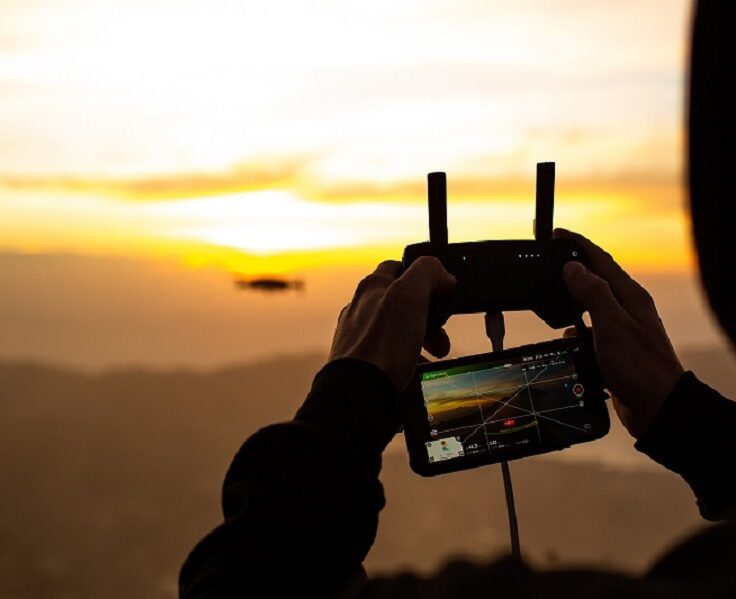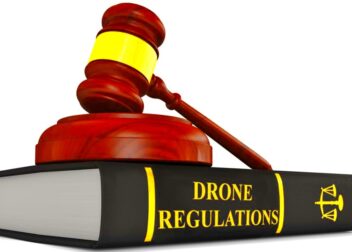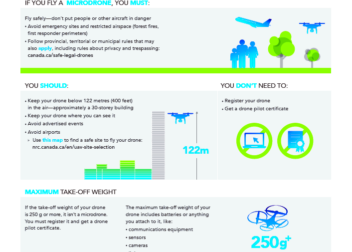Understanding Massachusetts Drone Laws
When I began my journey into the realm of drones I was taken aback by the vast amount of knowledge to acquire. Drones aren’t merely playthings; they are advanced gadgets equipped with a myriad of rules and guidelines. Massachusetts, similar to other states has its own regulations regarding drone usage that can be rather daunting for newcomers.
Drone regulations in Massachusetts aim to strike a balance between safety and privacy. They consist of a mix of federal laws and state specific guidelines. Its essential for both recreational users and commercial pilots to familiarize themselves with these rules to steer clear of penalties and legal issues.
Here’s a brief overview:
- Federal and State Laws: Both federal and state laws apply to drone operations. The Federal Aviation Administration (FAA) sets nationwide standards, while Massachusetts has additional requirements.
- Permits and Registrations: Depending on your drone’s weight and intended use, you might need specific permits or to register your drone with the FAA.
- Privacy Concerns: Massachusetts has strict rules on privacy. It’s illegal to use drones to invade someone’s privacy, and there are specific guidelines on where you can and cannot fly.
Keeping up to date and following these rules not only makes your flying experience smoother but also helps create a safer environment for all. As an avid drone flyer I’ve discovered that abiding by these regulations really enhances the overall enjoyment of the activity.
Key Federal Drone Laws That Apply in Massachusetts
As I began exploring the realm of drone regulations I soon discovered the importance of grasping federal laws. The Federal Aviation Administration (FAA) governs all drone operations across the country and its guidelines are applicable nationwide, including in Massachusetts.
Here are the important federal regulations regarding drones that you should be aware of.
- FAA Registration: If your drone weighs more than 0.55 pounds (250 grams), it must be registered with the FAA. This is a simple online process that involves providing your contact information and paying a small fee.
- Visual Line of Sight: The FAA requires that drone operators keep their drones within their visual line of sight at all times. This means you must be able to see your drone without the use of binoculars or other devices.
- Altitude Limits: Drones must not fly higher than 400 feet above ground level. This limit helps prevent collisions with manned aircraft and maintains airspace safety.
- No-Fly Zones: The FAA has established no-fly zones around airports and certain government buildings. It’s essential to check these zones before taking off to avoid fines.
These regulations aim to ensure that flying drones is a safe and pleasant experience for all. I still recall my initial flight, maneuvering through these rules was somewhat challenging, yet it was rewarding for the reassurance and excitement that came with flying in a responsible manner.
State-Specific Rules for Flying Drones
As an avid drone enthusiast I’ve come to realize that every state has its unique set of regulations when it comes to flying. Massachusetts is no different and its specific rules bring an additional factor for drone pilots to keep in mind.
Lets take a closer look at the key regulations regarding drone flights in Massachusetts.
- Local Restrictions: Some cities and towns in Massachusetts have their own drone regulations. For example, Boston has restrictions on flying drones in certain public parks and areas. Always check local ordinances before flying.
- Privacy Laws: Massachusetts has stringent privacy laws. You cannot use a drone to record or photograph people in private settings without their consent. This is especially important to remember in residential areas.
- State Parks and Wildlife Areas: Drones are generally prohibited in state parks and wildlife areas unless you have specific permission. This helps protect wildlife and the natural environment.
- Penalties: Violating state-specific drone regulations can result in fines and other penalties. It’s essential to familiarize yourself with these rules to avoid legal trouble.
Dealing with the rules in different states can be tough but it’s an essential aspect of being a drone pilot. Personally I’ve noticed that grasping and adhering to these guidelines improves my flying experience and allows me to indulge in my passion without any concerns.
Registering Your Drone in Massachusetts
When I started flying drones the registration process felt pretty confusing. I recall being swamped with all the forms and rules. Nevertheless signing up your drone is an important step to make sure you’re flying within the law and to steer clear of any potential legal problems.
Here’s a simple step by step guide to get your drone registered in Massachusetts.
- FAA Registration: All drones weighing more than 0.55 pounds (250 grams) must be registered with the Federal Aviation Administration (FAA). This registration is valid for three years. You can complete the process online through the FAA’s DroneZone website. The fee is nominal, around $5.
- Provide Details: When registering, you’ll need to provide your name, address, and email. The drone’s registration number must be displayed on the drone itself. Make sure to keep the registration details handy, as you may need to show proof of registration if asked.
- Educational Resources: The FAA provides resources to help new drone pilots understand the regulations. I found these resources incredibly helpful when I was starting out. They offer valuable tips on safe flying practices and regulatory compliance.
Registering your drone may appear to be an inconvenience but its a crucial aspect of being a conscientious drone pilot. After completing the procedure I experienced a wave of comfort and preparedness to soar through the skies. The registration serves as your pass to fly in a lawful and secure manner.
Drone Flight Restrictions and No-Fly Zones
As a drone lover I’ve come to realize how crucial it is to grasp flight limitations and areas where flying is prohibited. Soaring through zones can result in penalties and legal problems. Therefore it’s vital to be aware of where you are allowed to take off and where you should steer clear of.
Here’s an overview of important flight limitations and areas where flying is prohibited in Massachusetts.
- Airport Zones: You must avoid flying within 5 miles of an airport unless you have prior authorization from the FAA. This rule helps prevent collisions with manned aircraft. Before each flight, I always check the airspace around my location using tools like the FAA’s B4UFLY app.
- Government Buildings: Drones are restricted from flying over certain government buildings and facilities. These include military bases and federal buildings. Respecting these boundaries ensures your flights are both legal and safe.
- State and Local Parks: Many state and local parks have their own restrictions on drone use. For example, in some areas, you need a special permit to fly. Always check with local authorities before flying in these locations to avoid fines.
- Events and Crowds: Avoid flying drones over large crowds or events. Not only is it a safety concern, but it can also be a violation of local regulations.
Knowing about these limitations allows you to operate your drone in a way. I recall an incident where I nearly unintentionally entered a zone. Reviewing these areas in advance spared me from facing a penalty and let me relish my flight without any concerns.
Privacy Concerns and Drone Use
In this era drones have raised concerns about privacy. I often ponder the impact of these airborne gadgets on peoples privacy and the significance of honoring personal boundaries. For every drone pilot it’s essential to navigate privacy issues carefully.
Here are a few important privacy factors to keep in mind when operating drones in Massachusetts
- Respect Personal Space: Avoid using your drone to capture images or videos of individuals in their private spaces without their consent. Massachusetts law is very clear about this, and respecting privacy helps maintain trust and legality.
- Local Privacy Laws: Massachusetts has specific privacy laws that prohibit drones from being used to invade someone’s privacy. This includes recording or photographing people in their homes or private areas without permission.
- Public vs. Private Land: Be mindful of where you fly your drone. While flying over public land might be permissible, capturing images of private property without consent can be problematic. Always consider whether your drone activity might intrude on someone’s privacy.
- Ethical Considerations: Beyond legal requirements, think about the ethical implications of your drone use. It’s always best to fly responsibly and with respect for others’ privacy.
Being aware of privacy matters not helps you stay on the right side of the law but also nurtures a connection with people in your vicinity. Personally I’ve discovered that grasping and honoring these issues enhances my enjoyment and satisfaction while flying drones.
Penalties for Violating Drone Laws
Getting through the maze of drone rules can be challenging and it’s easy to slip up. I’ve had my moments and realized just how important it is to grasp the consequences of violating drone regulations. The punishments can be hefty depending on the offense.
Here’s a summary of the possible consequences for breaching drone regulations in Massachusetts.
- Fines: Violating federal or state drone laws can result in substantial fines. For example, flying in restricted airspace without permission can lead to fines ranging from $1,000 to $10,000. These fines are in place to deter reckless behavior and ensure safety.
- Seizure of Equipment: In some cases, authorities may seize your drone if you’re found violating laws. This can be particularly distressing if you’ve invested a lot in your equipment. I remember feeling anxious just thinking about the possibility of losing my drone over a small oversight.
- Criminal Charges: Serious violations, such as using drones to invade privacy or interfere with emergency operations, can lead to criminal charges. This could include fines and even jail time, depending on the severity of the offense.
- Legal Costs: If you end up in court due to a drone-related issue, the legal costs can add up quickly. It’s not just the fines; it’s also the potential costs of hiring a lawyer and dealing with legal proceedings.
Knowing about these penalties has made me more careful and mindful when using my drone. It serves as a reminder to stay updated and considerate of the regulations. The possible repercussions are significant and being proactive in adhering to the rules is the most effective way to steer clear of them.
Resources for Drone Operators in Massachusetts
As someone who loves flying drones, I cant stress enough how important it is to have the right resources at your fingertips. Whether its understanding the rules or staying up to date with local regulations having access to trustworthy information can truly impact your experience. If you’re in Massachusetts there are plenty of helpful resources available for drone pilots like you to stay informed and ensure you follow the guidelines.
Here are some helpful resources for people flying drones in Massachusetts:
- FAA’s DroneZone: The FAA’s official website, DroneZone, provides information on registration, rules, and updates. It’s the go-to place for understanding federal regulations and ensuring your drone is properly registered.
- Massachusetts Executive Office of Public Safety: This office offers guidance on state-specific regulations and safety tips. Their website is a good resource for understanding local drone laws and any recent changes.
- Local Municipal Websites: Many cities and towns in Massachusetts have their own regulations. Checking local government websites can provide insights into specific rules and restrictions in your area.
- Drone Communities and Forums: Online communities and forums can be incredibly helpful. Sites like Reddit’s drone forums or local drone clubs can offer advice, share experiences, and provide support.
- Educational Workshops and Webinars: Look for workshops and webinars hosted by drone organizations or local governments. These events can offer valuable information and updates on drone laws and best practices.
Discovering and utilizing these tools has been a real turning point for me. Not only have they assisted me in staying within the boundaries of the law but theyve also elevated my flying journey. The more knowledge you have, the more you can savor your drone escapades.
FAQ
Q: Do I need to register my drone in Massachusetts?
If your drone tips the scales at over 0.55 pounds 250 grams, you need to sign it up with the FAA. This registration lasts for three years and is mandated by federal law.
Q: Can I fly my drone in state parks in Massachusetts?
Drones are typically prohibited in state parks unless you have a permit. It’s advisable to verify the rules with the park or local officials regarding any limitations or permit processes.
Q: What are the consequences of flying in restricted airspace?
Unauthorized flying in airspace can lead to significant penalties, including fines, the confiscation of your drone and possibly even criminal charges depending on how serious the infraction is.
Q: Are there any privacy laws I need to be aware of?
Absolutely, Massachusetts enforces privacy regulations when it comes to drone usage. It’s prohibited to use drones for taking photos or videos of people in private spaces unless you have their approval.
Q: Where can I find updates on local drone regulations?
A: For the most recent updates on drone regulations in your area, take a look at the websites of your local municipality and the Massachusetts Executive Office of Public Safety. You can also find valuable information on online forums and within drone communities.
Conclusion
Looking back on my drone journey, I have come to realize how crucial it is to grasp and honor the rules surrounding their usage. At first navigating drone regulations in Massachusetts may appear overwhelming but armed with the information and tools it becomes more manageable. I recall my initial attempts at flying there was a lot to absorb and I made a couple of missteps during the process. However each encounter taught me an important lesson, about following the rules, ensuring safety and flying responsibly.
To ensure a seamless and enjoyable drone experience it is essential to register your drone follow flight restrictions and address privacy concerns. Every facet of drone operation plays a role in making your journey smooth. By utilizing resources keeping up with regulations and being aware of federal and state laws you can ensure that your drone escapades are both thrilling and compliant with the law.
By following these rules you not only stay within the boundaries of the law but also enrich your experience in this captivating pastime. Its all about soaring through the skies, with caution valuing the well being of others and fully embracing the amazing capabilities of technology available to you. Wishing you a joyful flight!


